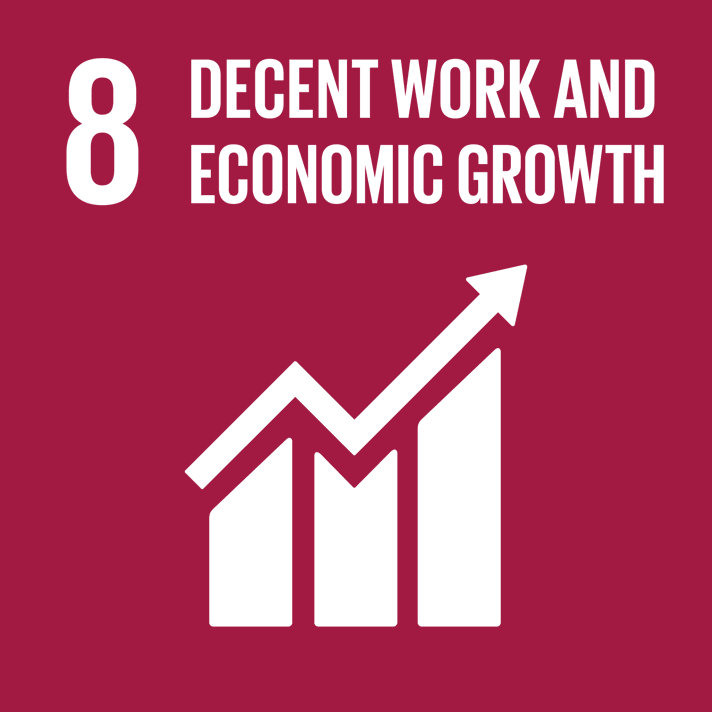Goal 8: Decent work and economic growth
Published
Goal 8 is to promote sustained, inclusive and sustainable economic growth, full and productive employment and decent work for all.

More than half of the world's workers are in insecure jobs, often caught in a vicious circle of low-productive occupations with poor pay, and limited access to both education and social insurance. This applies more to women than to men. In addition, over the next 20 years, the global workforce is expected to increase by 800 million people, which means that major efforts will be needed to create new jobs. Promoting macroeconomic stability, a positive investment climate, employment and decent work are important factors for sustainable development.
Good conditions for private enterprise and entrepreneurship are one of the prerequisites for growth that society as a whole takes part in, and for achieving the goal of eradicating extreme poverty by 2030. For companies to develop their full potential, access to national, regional and global markets is vital. These factors are also important for foreign investment, which can provide an important contribution to employment, innovation, technology transfer and productive capacity.
Promotion of decent work should be conducted at the same time as access to basic social benefits is expanded. Social security systems foster secure individuals, reduce the risk of children being exploited, stabilise the economy in the event of emergencies and facilitate mobility in the labour market. Information about social protection systems is available under Goal 1.
Targets
8.1 Sustain per capita economic growth in accordance with national circumstances and, in particular, at least 7 per cent gross domestic product growth per annum in the least developed countries
8.2 Achieve higher levels of economic productivity through diversification, technological upgrading and innovation, including through a focus on high-value added and labour-intensive sectors
8.3 Promote development-oriented policies that support productive activities, decent job creation, entrepreneurship, creativity and innovation, and encourage the formalization and growth of micro-, small-and medium-sized enterprises, including through access to financial services
8.4 Improve progressively, through 2030, global resource efficiency in consumption and production and endeavour to decouple economic growth from environmental degradation, in accordance with the 10-year framework of programmes on sustainable consumption and production, with developed countries taking the lead
8.5 By 2030, achieve full and productive employment and decent work for all women and men, including for young people and persons with disabilities, and equal pay for work of equal value
8.6 By 2020, substantially reduce the proportion of youth not in employment, education or training
8.7 Take immediate and effective measures to eradicate forced labour, end modern slavery and human trafficking and secure the prohibition and elimination of the worst forms of child labour, including recruitment and use of child soldiers, and by 2025 end child labour in all its forms
8.8 Protect labour rights and promote safe and secure working environments for all workers, including migrant workers, in particular women migrants, and those in precarious employment
8.9 By 2030, devise and implement policies to promote sustainable tourism that creates jobs and promotes local culture and products
8.10 Strengthen the capacity of domestic financial institutions to encourage and expand access to banking, insurance and financial services for all
8.a Increase Aid for Trade support for developing countries, in particular least developed countries, including through the Enhanced Integrated Framework for Trade-Related Technical Assistance to Least Developed Countries
8.b By 2020, develop and operationalize a global strategy for youth employment and implement the Global Jobs Pact of the International Labour Organization

 X
X